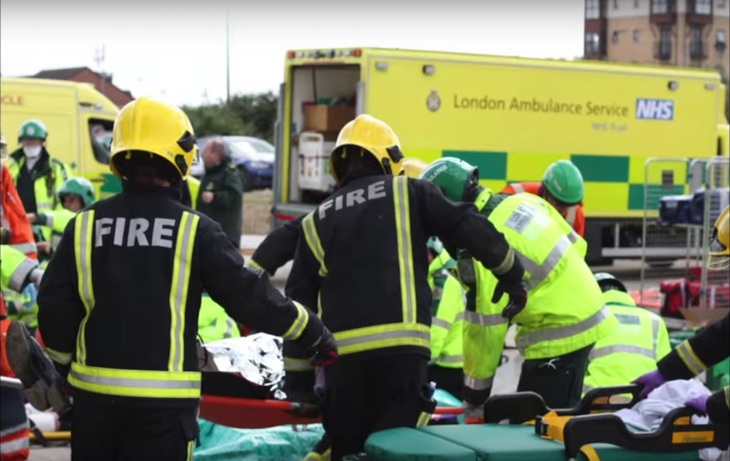
We hope when you're trundling along trying to avoid eye contact on the tube in the morning, you don't spend time wondering what would happen if a high-rise building above collapsed into the tunnel.
That's the scenario being played out by the London's emergency services in a disused power station near Dartford today.
Firefighters, police officers and ambulance personnel from across London are taking part in a four-day exercise based on a building falling onto a tube station.

In order to create the most realistic environment possible for this massive disaster training exercise, an entire tube station has been recreated and then 'crushed'.
Today's 'disaster' involves more than 1,000 volunteer and actor 'casualties', thousands of tonnes of rubble, seven tube carriages and hundreds of real emergency service responders.
London's Air Ambulance, TfL and a number of local authorities in London are also taking part, as well as teams of firefighters from Italy, Hungary and Cyprus.
London Fire Commissioner Ron Dobson, said, "Exercises of this scale are important to ensure that we are always ready to respond no matter what happens.
"You can't get this sort of experience from a text book, we need to play it like it's real.
"An incident of this size affects everyone from thousands of stranded commuters who can't get home, to distraught relatives who can't reach loved ones.
"In this scenario, police and local authorities will set up a Humanitarian Assistance Centre which offers information and support."
The exercise will be independently evaluated and any lessons learned will be used to improve the way the services respond to future emergency incidents.
Mock-up scenarios like this are a key part of how specialist teams from the police, ambulance service and local authorities are able to practise skills that are thankfully rarely used.




